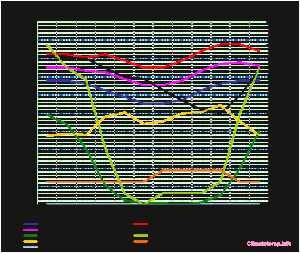Temperatures in Malawi are rising steadily, more frequent droughts and floods
Published on November 3, 2011 at 11:28 AM by FACE OF MALAWI
 Changing weather patterns are undermining the ability of smallholder producers in Malawi’s southern region to grow tea, a crop that usually brings in 70 percent of their income, according to local farmers interviewed for a recent Fairtrade study.
Changing weather patterns are undermining the ability of smallholder producers in Malawi’s southern region to grow tea, a crop that usually brings in 70 percent of their income, according to local farmers interviewed for a recent Fairtrade study.
The soils, climatic conditions and sloping ground of the area around the impressive Mount Mulanje, where most of Malawi’s tea is grown, are well suited to the crop that supports up to 10,000 smallholder farmers.
However, data collected by the United Nations and a number of international anti-poverty groups, including Action Aid and Fairtrade, show that temperatures in Malawi are rising steadily, and more frequent droughts and floods are affecting more people.
In 2006 Action Aid found that from 1970 to 2006 Malawi experienced 40 weather-related disasters, with 16 occurring after 1990.
Before 2001 only nine Malawian districts were classified as flood-prone, but 16 were affected in 2001 and a further 14 in 2002. By the end of January 2003 there was localised flooding in 22 districts, causing eight deaths and damaging homes and crops.
Using statistics from the UN Development Programme, the University of Greenwich deduced in 2010 that the mean temperature in Malawi could be expected to rise by between 0 .5 and 1.8 degrees Celsius by the 2030s.
This would reduce the viability of tea at the lower levels of its current altitudinal range within the next few decades, according to Fairtrade. The organization will be presenting case studies about how a changing climate is affecting small-scale farmers across Africa at the UN climate change conference in Durban, South Africa, in late November 2011.
Yields down
“In this part of Malawi we are meant to have rains from November to September, and that is very good for growing tea. Unfortunately though, the annual rainy seasons have been reducing in length, and the periods of drought have been increasing,” said Austin Changazi, a manager at the Sukambizi Association Trust, a cooperative of smallholder farmers with 6,300 members.


